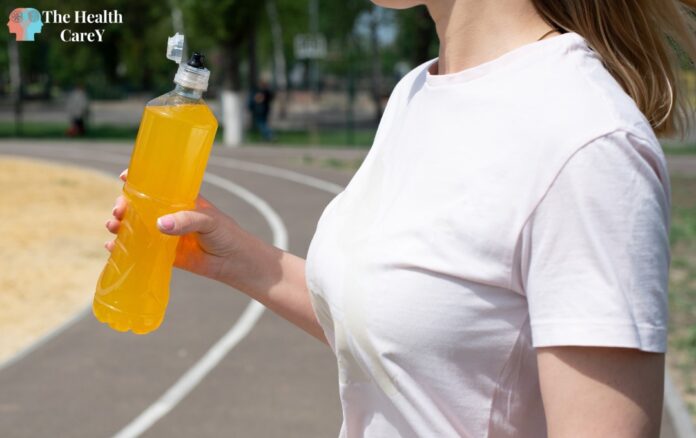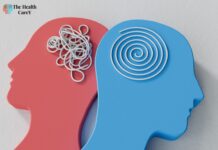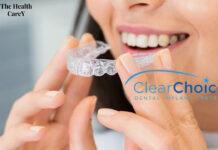Do electrolytes give you energy? It’s a common question, especially among athletes and fitness enthusiasts. Electrolytes are minerals that carry an electric charge, and they play a crucial role in many bodily functions, including muscle contractions and nerve impulses. But do they actually boost your energy levels?
The short answer is no, electrolytes themselves do not provide energy. Energy comes from calories, which are obtained from the food we eat. However, electrolytes are important for maintaining proper hydration and fluid balance in the body, which can indirectly affect your energy levels.
When you become dehydrated, your blood volume decreases, making it harder for your heart to pump blood and deliver oxygen and nutrients to your muscles. This can lead to fatigue and decreased performance. Electrolytes help to regulate fluid balance and prevent dehydration, which can help you maintain your energy levels during exercise or other physical activity.
Understanding Electrolytes
Electrolytes are essential minerals that play a vital role in maintaining proper bodily functions. They are electrically charged ions that can conduct electricity when dissolved in fluids such as blood and urine.
Electrolytes are responsible for maintaining the proper balance of fluids inside and outside of cells, regulating the pH levels of the body, and aiding in nerve and muscle function.
Role of Electrolytes in the Body
Electrolytes help to regulate the amount of water in your body and maintain a proper balance of fluids. They work to ensure that your cells are properly hydrated, which is necessary for optimal bodily function.
Electrolytes also play a critical role in regulating the pH levels of the body, which is essential for maintaining a healthy acid-base balance.
In addition, electrolytes are important for nerve and muscle function. They help to transmit electrical impulses throughout the body, which is necessary for proper muscle contractions and nerve signaling. Electrolytes also aid in the absorption and transportation of nutrients, such as glucose and amino acids, throughout the body.
Types of Electrolytes and Their Functions
There are several types of electrolytes, each with their own unique functions. Some of the most important electrolytes include:
- Sodium: Sodium is responsible for regulating the amount of water in the body and maintaining proper nerve and muscle function.
- Potassium: Potassium is necessary for proper muscle contractions and nerve signaling. It also helps to regulate the pH levels of the body.
- Calcium: Calcium is essential for strong bones and teeth. It also plays a critical role in muscle function and nerve signaling.
- Magnesium: Magnesium is important for maintaining healthy bones and teeth. It also aids in muscle and nerve function and helps to regulate the pH levels of the body.
- Chloride: Chloride helps to maintain the proper balance of fluids in the body and aids in the absorption and transportation of nutrients.
While electrolytes are important for maintaining proper bodily functions, they do not provide energy directly. However, they do play a critical role in ensuring that your body is functioning properly, which can indirectly lead to increased energy levels.
Do Electrolytes Give You Energy?
Electrolytes are minerals that play a crucial role in maintaining proper hydration and bodily function. They are known to regulate nerve and muscle function, balance pH levels, and support the body’s fluid balance. But do electrolytes give you energy?
Electrolytes Impact on Energy Levels
Electrolytes are essential for the proper functioning of your body, including energy production. They help to maintain the balance of fluids in your body, which is necessary for the proper functioning of your cells.
When your body is dehydrated, your cells don’t function properly, leading to fatigue and decreased energy levels.
Electrolytes also play a role in the transportation of nutrients and oxygen to your cells. Without proper electrolyte balance, your cells may not receive the necessary nutrients and oxygen, leading to decreased energy levels.
Myths About Electrolytes and Energy
There are many myths surrounding the connection between electrolytes and energy. One common myth is that sports drinks with added electrolytes will give you an energy boost. While sports drinks can help to replenish electrolytes lost during exercise, they do not provide an instant energy boost.
Another myth is that consuming excessive amounts of electrolytes will give you more energy. However, consuming too many electrolytes can lead to an imbalance in your body, leading to negative health effects.
Sources of Electrolytes
Electrolytes are essential minerals that carry electrical charges and help regulate various bodily functions. They are found in many foods and beverages, and can also be obtained through supplements and sports drinks.
Natural Sources
Many foods are naturally rich in electrolytes, making it easy to incorporate them into your diet. Here are some examples:
- Sodium: table salt, soy sauce, pickles, olives, celery, spinach
- Potassium: bananas, oranges, cantaloupe, avocados, tomatoes, potatoes
- Calcium: dairy products, leafy greens, tofu, almonds, sardines
- Magnesium: nuts, seeds, whole grains, leafy greens, beans, fish
By incorporating these foods into your meals and snacks, you can ensure that you are getting a good balance of electrolytes.
Supplements and Sports Drinks
In addition to natural sources, electrolytes can also be obtained through supplements and sports drinks. These products are designed to provide a quick and convenient source of electrolytes, especially during periods of intense physical activity or when you are unable to consume enough electrolyte-rich foods.
Some popular options include:
- Electrolyte tablets or powders: These can be dissolved in water and consumed before, during, or after exercise to help replenish electrolytes.
- Sports drinks: Many sports drinks contain electrolytes, along with carbohydrates and other nutrients to help fuel and hydrate your body during exercise.
- Pedialyte: Originally designed for children with diarrhea, Pedialyte is now marketed as a rehydration solution for adults as well. It contains a balance of electrolytes and carbohydrates to help replenish fluids and nutrients lost during illness or intense physical activity.
While supplements and sports drinks can be helpful in certain situations, they should not be relied on as a primary source of electrolytes. It is always best to obtain nutrients from whole foods whenever possible.
Balancing Electrolytes for Optimal Energy
When it comes to maintaining your energy levels, electrolytes play a crucial role. Electrolytes are minerals that are essential for various bodily functions, including the regulation of fluid balance, muscle contractions, and nerve function. When you have an imbalance of electrolytes, it can lead to fatigue, muscle weakness, and even cramping.
To ensure that you have optimal energy levels, it’s important to balance your electrolytes. The following are some tips to help you achieve this:
1. Stay Hydrated
Water is essential for maintaining electrolyte balance. When you’re dehydrated, your body loses electrolytes through sweat and urine.
To prevent this, make sure you’re drinking enough water throughout the day. Aim for at least eight glasses of water per day, and more if you’re exercising or in a hot environment.
2. Eat a Balanced Diet
Eating a balanced diet that includes a variety of fruits, vegetables, whole grains, and lean protein sources can help you maintain electrolyte balance.
Some foods that are high in electrolytes include bananas, spinach, avocado, nuts, and seeds.
3. Consider Electrolyte Supplements
If you’re not getting enough electrolytes from your diet, you may want to consider taking supplements. However, it’s important to talk to your doctor before starting any new supplements.
Some electrolyte supplements can interact with medications or cause side effects.
4. Avoid Excessive Alcohol and Caffeine
Alcohol and caffeine can both dehydrate you and cause an imbalance of electrolytes. If you’re trying to maintain optimal energy levels, it’s best to limit your intake of these substances.
Frequently Asked Questions
How do electrolytes contribute to hydration?
Electrolytes are minerals that help regulate fluid balance in your body. When you sweat, you lose electrolytes, which can lead to dehydration. Consuming electrolytes can help replenish the minerals lost through sweating and maintain proper hydration levels.
Can consuming electrolytes improve athletic performance?
Electrolytes play a crucial role in maintaining optimal physical performance. When you exercise, you lose electrolytes through sweat.
Replacing these minerals through electrolyte consumption can help improve endurance, reduce muscle cramps, and enhance recovery time.
Are there benefits to drinking electrolytes daily?
Drinking electrolytes daily can help maintain proper hydration levels and promote overall health. Electrolytes are essential for various bodily functions, including nerve and muscle function, and maintaining a healthy fluid balance.
What is the role of electrolytes in managing fatigue?
Electrolytes play a vital role in managing fatigue by regulating fluid balance and supporting nerve and muscle function. When you become dehydrated, your body may experience fatigue, weakness, and dizziness.
Consuming electrolytes can help prevent these symptoms and promote optimal physical performance.
Can electrolyte intake affect weight loss or gain?
Electrolyte intake alone does not directly affect weight loss or gain. However, consuming electrolytes can help maintain proper hydration levels, which may indirectly aid in weight loss.
Staying hydrated can help reduce appetite, improve metabolism, and promote overall health.
Do electrolyte supplements contain caffeine?
Not all electrolyte supplements contain caffeine. It is essential to read the labels carefully before purchasing any electrolyte supplement to ensure that it meets your specific needs.
Some supplements may contain added caffeine or other stimulants. These may not be suitable for everyone.
Also Raed:
What are Benefits of Burning Bay Leaves?





















